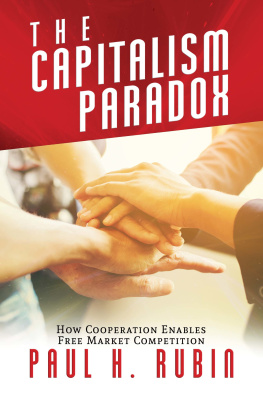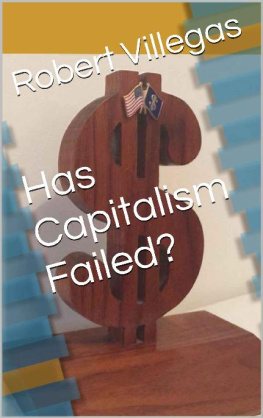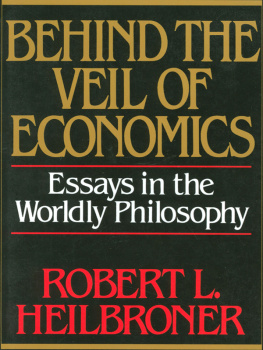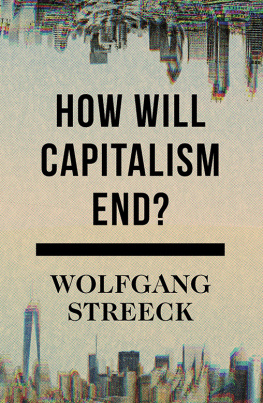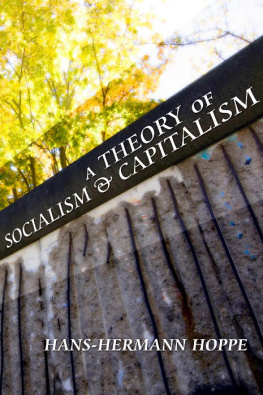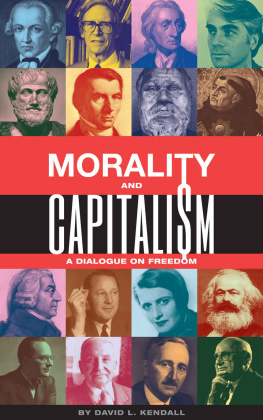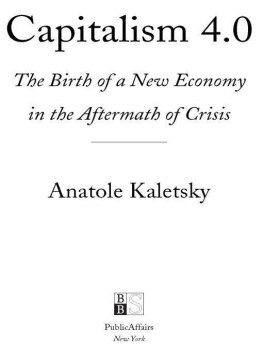The Right
To Live
IN DEFENSE OF CAPITALISM
ANTHONY JAMES STUERTZEL
Copyright 2021 Anthony James Stuertzel
All rights reserved. No portion of this book may be reproduced in any form without permission from the publisher, except as permitted by U.S. copyright law.
For permissions contact:
Cover art design created by: https://topbookdesigner.weebly.com/
Abstract:
Man has a right to life and the pursuit of happiness. These rights can only be possessed by free men in a system of Laissez-Faire Capitalism. The Socialists of our country seek to foster brotherhood and cooperation by means of force and coercion. But neither brotherhood nor cooperation can be achieved by means of force. These virtues can only be achieved by Capitalism.
This book has been written in response to the prevalent philosophy of Socialism which has taken root in todays modern society and in defense of Capitalism as the only moral system. Some people, viewing morality as only a product of Utilitarianism, have sought to make the claim that economics and morality are two separate fields of studyone the ideal and the other the practical.
This book is a collection of essays which accounts for a thorough exploration of Capitalism in terms of being both a system of ethics and in terms of economics. While the main theme of this book is a rational defense of Capitalism based in reason, this book also addresses the main objections against Capitalism by its opponents and also reveals the hypocrisy of Socialism.
All of mans rights stem from his most basic and fundamental right: his right to live. Only Capitalism can provide man with the requirements necessary to his life and his achievements. Capitalism is not a moral system because it is practical, but it is practical because it is moral. And thus, I have written this book to demonstrate and defend the virtues of Capitalism.
For those who think that the good is doomed to fail, I have only one question:
Do they want to destroy your freedom more than you want to live?
Table of Contents
Why Did I Write This Book?
To fully explain what led me to write this book, it is important to look back on my own journey and transformation as a rational thinker.
From an early age, I valued rational thinking. I have always held reason as my cardinal virtue and took pride in my ability to think and to reason. Aided by the guidance of my parents, rational thinking seemed like an automatic state of mind, unaware of the fact that rational thinking was a skill which had to be practiced and developed by the individual. From early in life and from then on, I held that education and learning were intrinsically good. Without having even identified my belief, I held the supremacy of the mind above all other considerations.
I remember finding myself frustrated at the lack of rational thought exhibited by my peers. I couldnt understand why they struggled with mathematical concepts or rational ideas, feeling a sense of solitude and disconnect with other children of my own age group. Then, observing the absurd behavior of the status quo in society, my observations generalized into a feeling of contempt towards the mentally incompetent and the ominous feeling that intelligence was a rare quality in mankind. However, rooted in a connection with a close group of friends, I recognized the heroic potential of man, unable to discern precisely what differentiated those with whom I held respect and those whom I viewed as incompetent. A common dogma that prevailed throughout my life was, I hate stupid people.
My hatred of stupidity was not born of a genuine contempt for any particular individual or any specific actions on their part, but from the implicit recognition of mans highest potential and the disappointment of finding virtues in so few individuals.
I eventually came to realize that reason was not an automatic achievement of mans nature, but instead was a conscious choice. For example, when I observed the difference between those who excelled at math and those who struggled, I realized that those who were successful in the pursuit were overwhelmingly those who were interested in learning math or at least attributed some significant value in acquiring an understanding of mathematic principles. Eventually, I had rightfully concluded that what was required in order to understand mathematical concepts was the willingness to understand its principles. Those who took up the pursuit of learning in earnest were rewarded with a conceptual understanding of concepts; while those who viewed learning as a means to an end often struggled.
Throughout my life, I have always understood implicitly the cardinal virtues of Capitalism. Before I had formally developed my understanding of philosophy and ethics, the guiding principle of my thinking was justice, without having fully developed an understanding of the meaning and context of the concept. Deriving my understanding of ethics from a process of principled thinking, I instinctually began integrating my ideas into consistent, non-contradictory principles and evolving my thinking but making many errors along the way. One of the many errors I had made in my youth was in regards to inherited wealth. I had recognized that property rights were a primary right of man and that all men were entitled to their own property. But like many youths, I had failed to properly integrate the concept of property rights with inheritance, failing to recognize that a tax on inheritance was a violation of the rights of the benefactor.
Never in my life had I believed in any conception of a subjective reality or a subjective truth. Inherit in my principles was the unstated belief that not only was their one objective truth, but that man was capable of discovering the nature of that truth. Thus, any difference of opinion was brought about by an error in thinking and not based on any non-universal truththat no concept of truth is valid unless it is compatible with the objectivity of reality.
Thus, I was excited to finally enroll in college and discover the higher pursuit of learning I had been yearning for all-throughout my childhood. After changing majors repeatedly throughout my first few years at community college, by the time I graduated with my Associates degree, I had firmly settled on pursuing a Bachelors Degree in Political Science. Primarily born from the lack of fulfillment I experienced in my education as a youthhaving an unlimited desire to learn but only a limited experience of having my mind properly challengedmy discontent had turned into a desire for action and change. What sort of action? What sort of change? That is what I had yet to identify.
It is hard to say that my university education was not valuable in regards to my own personal development and thinking, but I was disappointed to discover how seldom I had a professor who really delivered the challenge of thinking I was yearning for. The majority of my classes were easy and did not significantly challenge my thinking, leaving me with a desire to pursue the professors who had the worst ratings on Rank My Professor, since the common complaint of the students aimed at these teachers was always something to the effect of, Their class is too hard. It wasthere is no other way to put itinhuman to me that students would go to college in pursuit of learning and actively evade the greatest opportunities to learn in favor of an easy grade. It was only later that I developed the means to express this behavior: that students did not desire to reach their highest intellectual potential; that what the students really wanted to achieve was an undeserved recognition of ability without the necessity to do the mental work required to achieve that recognition. Thus, I came to realize, these students did not value education the same way I did, they did not value the integrity of their own pursuits, and they did not have any specific purpose in their life but to evade effort and seek unearned rewards. It is curious that you meet so many college students who come home late from a night out on the town, drunk beyond their ability to function, who suddenly realize that they were supposed to complete an assignment due in several hours. One must wonder what fundamental prioritization develops such a negligent attitude that these young adults forgo the value of their expense tuition in favor of blurring their perception of reality and of responsibility.


